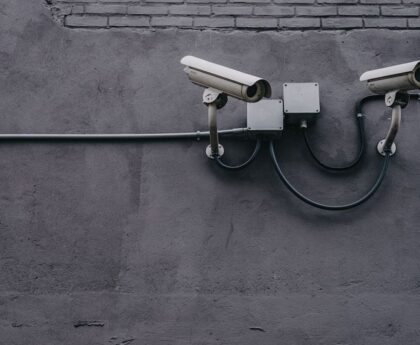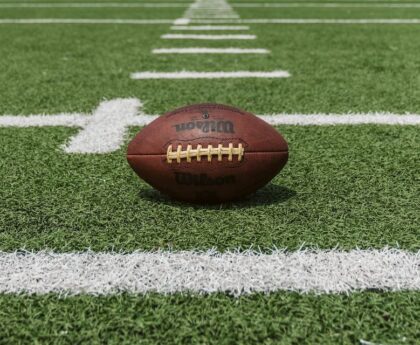Investigating the Haulover Incident: Accountability in Sports and Policing
The Incident
The recent shooting of a man in Miami Gardens has once again brought attention to the issue of accountability in sports, particularly in relation to athletes and their involvement in criminal incidents. The victim, who was found with multiple gunshot wounds, has raised questions about the role of professional athletes and the image they project both on and off the field.
The Role of Athletics
Athleticism and sports have always held a special place in society, with athletes often celebrated as role models. However, incidents involving athletes, such as in the case of Tyreek Hill, the Kansas City Chiefs’ wide receiver, who has faced allegations of domestic violence, challenge this notion. These incidents raise important questions about the responsibilities and expectations placed on athletes in their personal lives.
1. Balancing Personal Life and Public Image
Professional athletes, like any individuals, should be held accountable for their actions outside of their chosen profession. However, the public scrutiny and pressure placed on these individuals can be immense. It is crucial to strike a balance between recognizing their personal autonomy and addressing any misconduct that may undermine their public image.
2. Athletes as Role Models
Athletes, due to their prominence and influence, often serve as role models for younger generations. This responsibility extends beyond their performance on the field and encompasses their behavior off the field as well. It is imperative that athletes understand the impact they have on the lives of their fans, particularly young people who look up to them.
The Role of Law Enforcement
The incident in Miami Gardens also underscores the issue of policing and the ongoing debate surrounding law enforcement practices in the United States. When an athlete or any public figure is involved in a criminal incident, the question of how law enforcement should handle these cases and whether there is a bias in their approach arises.
1. Ensuring Impartial Investigations
For communities to have faith in law enforcement, it is crucial that investigations are conducted in an impartial and transparent manner. This includes cases involving athletes, where the potential for favoritism or bias may exist due to their status or fame. The public perception of fairness and justice should not be compromised when investigating high-profile individuals.
2. Accountability for All
Law enforcement agencies must ensure that accountability applies to everyone, regardless of their social status or profession. The same standard should be applied to professional athletes as it would be to any other individual involved in a criminal incident. This balance ensures that justice is served and sends a powerful message about the equality of the law.
Editorial: Striking a Balance
The recent incident in Miami Gardens serves as a stark reminder of the complexities involved in holding athletes accountable for their actions. While athletes should be expected to uphold high standards both on and off the field, it is important to approach these situations with fairness and an understanding of the pressures they face.
Society must examine the expectations placed on athletes as role models and consider the broader impact of their behavior. At the same time, professional athletes have a responsibility to use their platform and influence to promote positive values and make meaningful contributions to society.
Law enforcement agencies also have a critical role to play in ensuring impartiality and accountability. Investigations must be conducted with utmost professionalism and transparency, regardless of the status or fame of the individuals involved. This commitment to equality under the law fosters trust between the community and law enforcement.
Advice for Moving Forward
In order to address the issue of accountability in sports and policing, several steps can be taken:
1. Education and Mentoring Programs
Sports organizations, together with community leaders, should implement education and mentoring programs for athletes. These programs can help athletes understand the importance of their conduct and provide guidance on how to navigate the challenges they may face off the field.
2. Transparent Disciplinary Measures
Sports leagues and organizations should establish clear and transparent disciplinary measures for athletes involved in criminal incidents. These measures should take into account the severity of the offense and provide consistent consequences for misconduct, promoting fairness and discouraging future incidents.
3. Enhanced Training for Law Enforcement
Law enforcement agencies should provide enhanced training to their officers on handling high-profile cases. This training should cover issues of bias, impartiality, and the importance of conducting thorough and fair investigations, regardless of the individuals involved.
4. Community Engagement and Trust-Building
Law enforcement agencies should actively engage with their local communities, fostering relationships and building trust. This can be achieved through community outreach programs, transparency in their operations, and an open dialogue that addresses concerns and ensures accountability.
In conclusion, the incident in Miami Gardens raises important questions about the accountability of athletes and the role of law enforcement in high-profile cases. Striking a balance between personal autonomy and public expectation is a challenge, but through education, transparency, and enhanced training, progress can be made towards a more accountable and just society.

<< photo by Anna Nekrashevich >>
The image is for illustrative purposes only and does not depict the actual situation.
You might want to read !
- Victor Wembanyama Throws Opening Curveball at Yankee Stadium
- “Love, Rivalries, and Break Points: Zendaya Takes Center Court in Steamy Tennis Drama”
- “Challengers: Zendaya’s Twisty Tennis Love Story Unveiled in New Trailer”
- “American Golfers Creating New Narratives at the U.S. Open: Rickie Fowler and Xander Schauffele’s Historic Triumphs”
- New York Rivals Remain Benched: Yankees and Mets Delayed Due to…
- Yankees and Mets Postponed: Weather Delays the Battle for New York’s Baseball Bragging Rights
- The Tragic Fallout of Gun Violence: A Look into the Huguenot High School Shooting
- “Feminine Fashion and Double Standards: Reflection on Billie Eilish’s Response”
- “Biden Reflects on Progress and Challenges on the Third Anniversary of…”
- Taylor Swift’s Eras Tour: A Global Spectacle in 2024
- Taylor Swift Takes the World By Storm: New Eras Tour Dates Announced
- “The Depths Unveiled: James Cameron’s Reflection on Deep-Sea Exploration”




